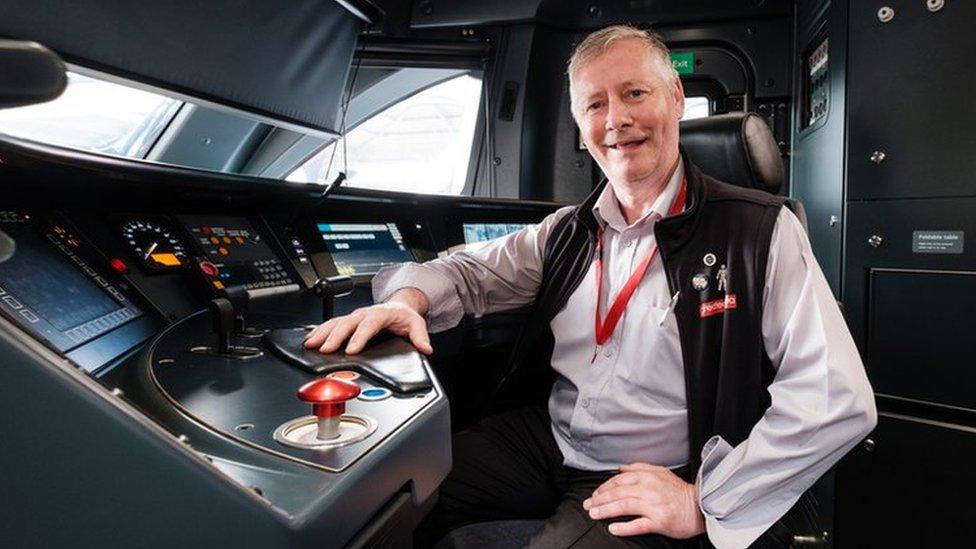Greater Anglia: Delivery of new Bombardier trains delayed
- Published
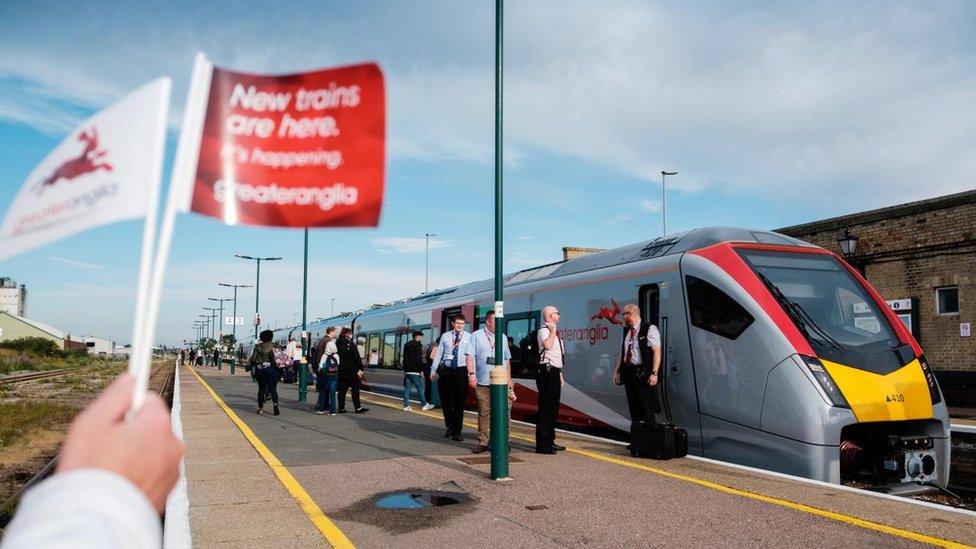
Trains made by Stadler (above) have been introduced, though the Bombardier fleet has been delayed
Delivery of the next phase of Greater Anglia's new £1.4bn fleet of trains has been delayed by software problems.
Manufacturer Bombardier said the first trains were expected to enter service by spring and not the end of this year.
It said development of the software to be used on the 111 trains had taken longer than anticipated.
Greater Anglia, which has seen a string of delays and cancellations with its new trains, said it had been told extra staff had been assigned to the job.
The first of the trains - which will run into London Liverpool Street - were expected to come into service at the end of the year, external, with all of them in use by the end of 2020.
"There is no precise date for entry into passenger service but we estimate spring 2020," said a Bombardier spokesman.
"The reason for the delay is we have needed longer than we thought to complete the software development on the new trains."
He added that other factors had also played a part, but the company was working to minimise the impact of the delay.
A Greater Anglia spokesman added: "[Bombardier] have assured us that production is being ramped up, with extra staff at their Derby factory so that our customers can benefit from these state-of-the-art trains as quickly as possible."
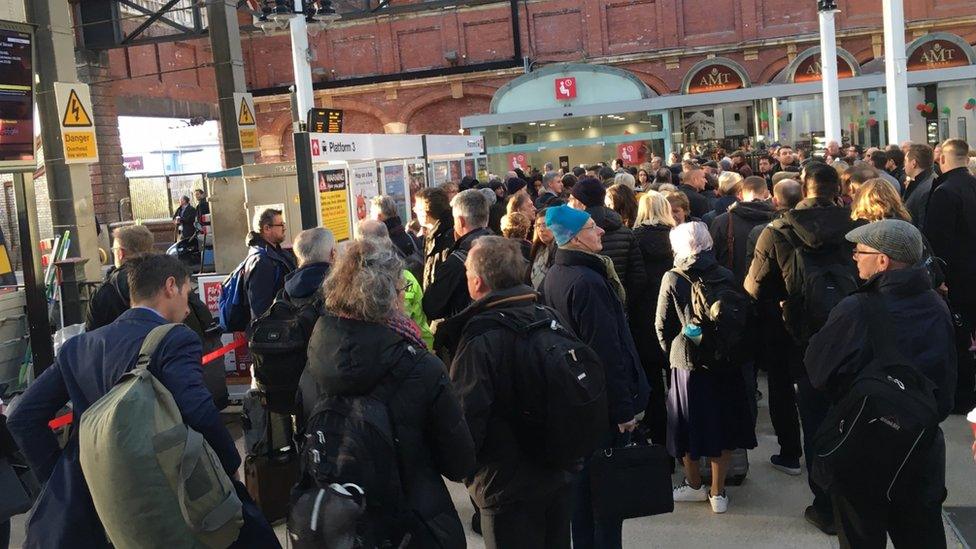
Greater Anglia has told passengers to expect disruption until further notice
Once complete, Greater Anglia's new fleet of 169 trains will include 38 bi-mode trains, able to run on diesel or electric power, and 20 electric trains to serve the Norwich-London and Stansted Express services.
The remaining 111 trains made by Bombardier will serve London Liverpool Street from Essex, Suffolk, Cambridgeshire and Hertfordshire.
Greater Anglia's introduction of the bi-mode trains, made by the Swiss manufacturer Stadler, has attracted criticism amid widespread delays and cancellations.
An investigation is under way after one of the new trains came within a quarter-second of hitting a car on a level crossing when the barriers opened early.
Greater Anglia has also admitted it was "letting people down" after its service was described by commuters as a "shambles" whose unreliability was "affecting people's work".
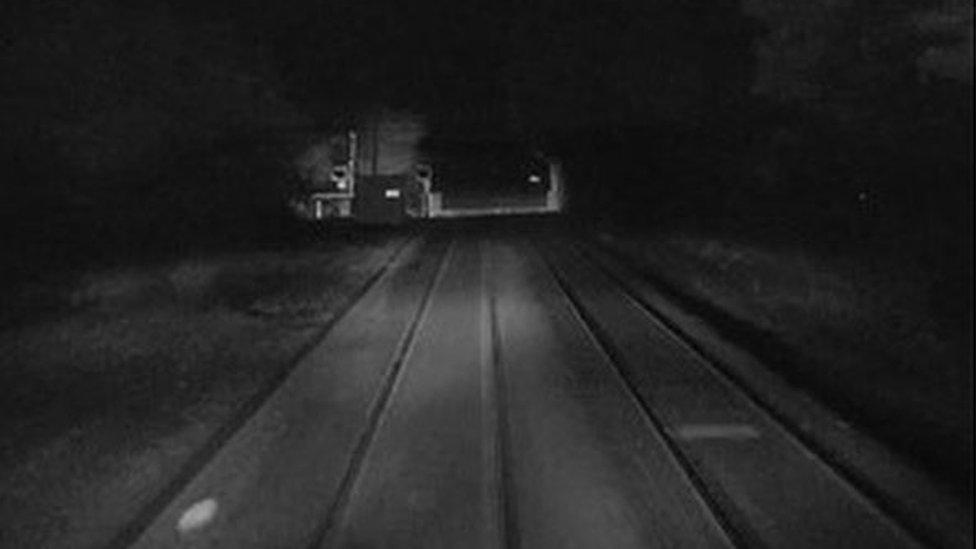
An image from the Greater Anglia train which came within 0.25 seconds of hitting a car when a level crossing opened early
- Published10 December 2019
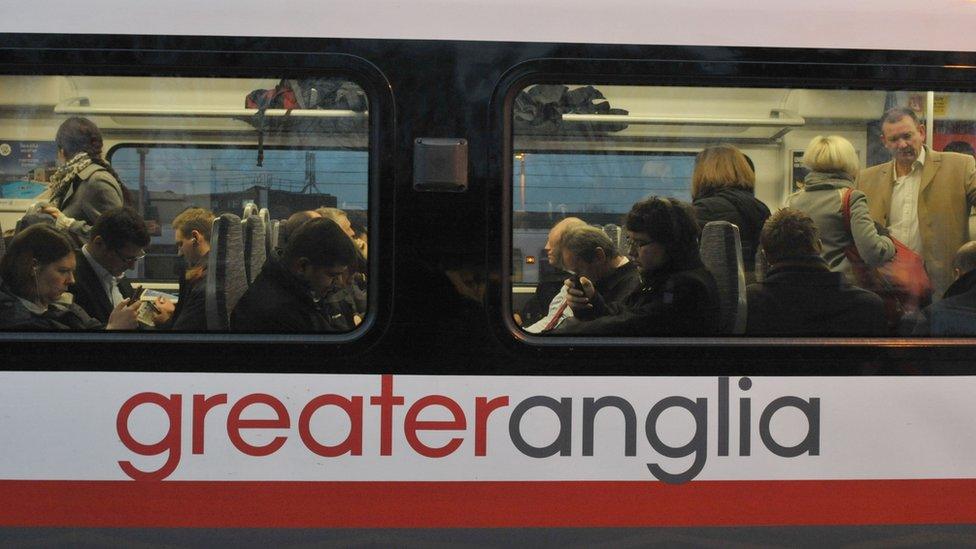
- Published9 December 2019
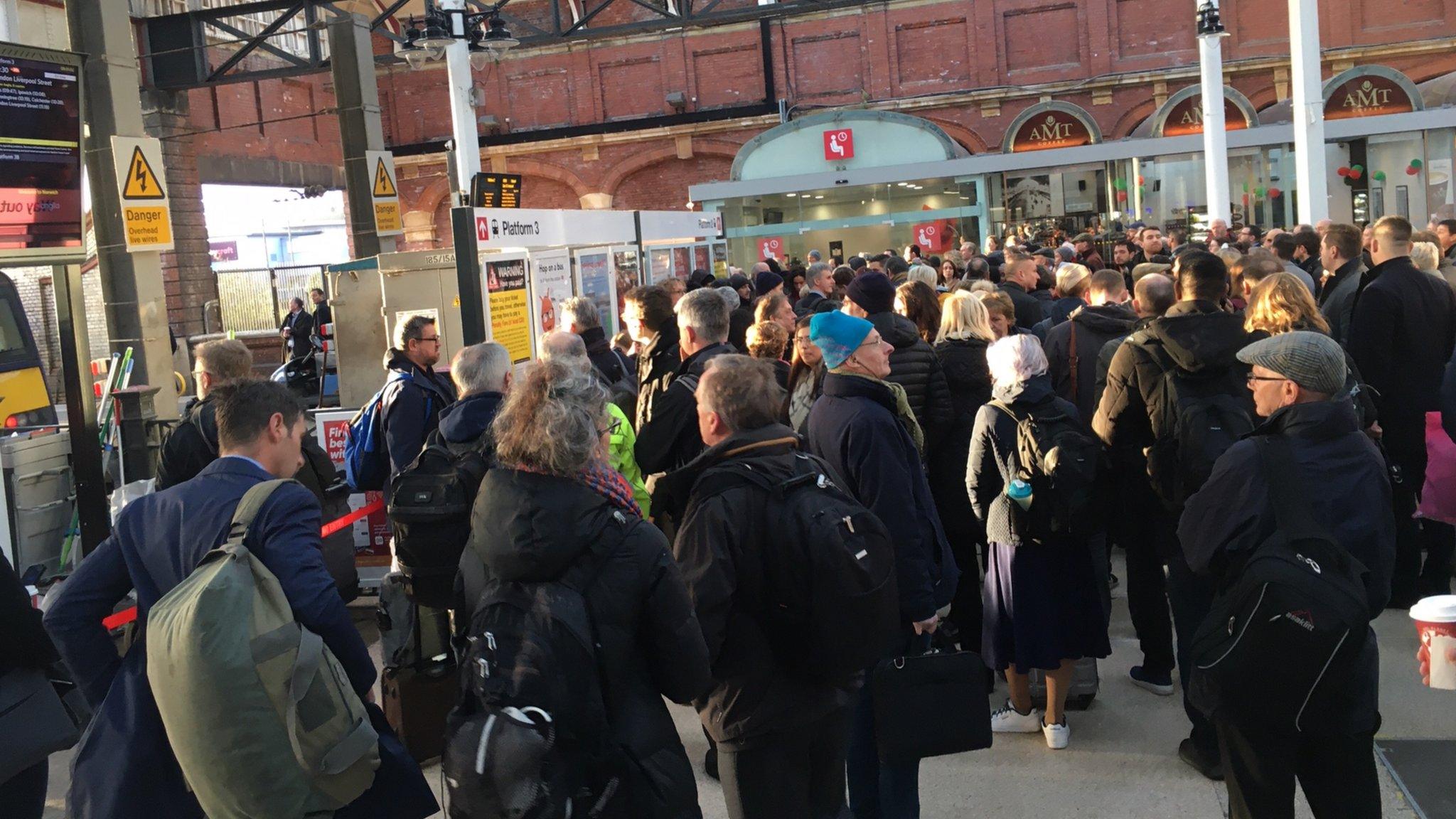
- Published6 December 2019
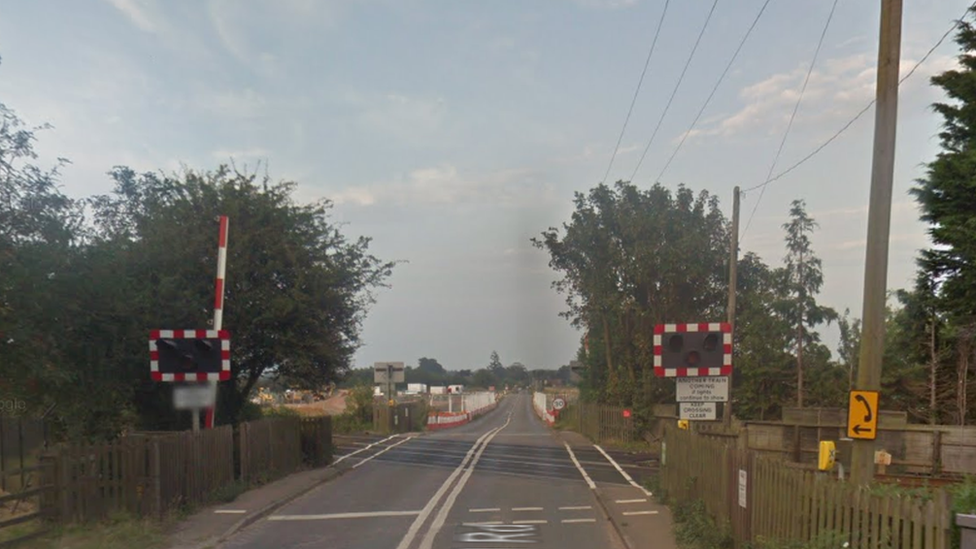
- Published4 September 2019
